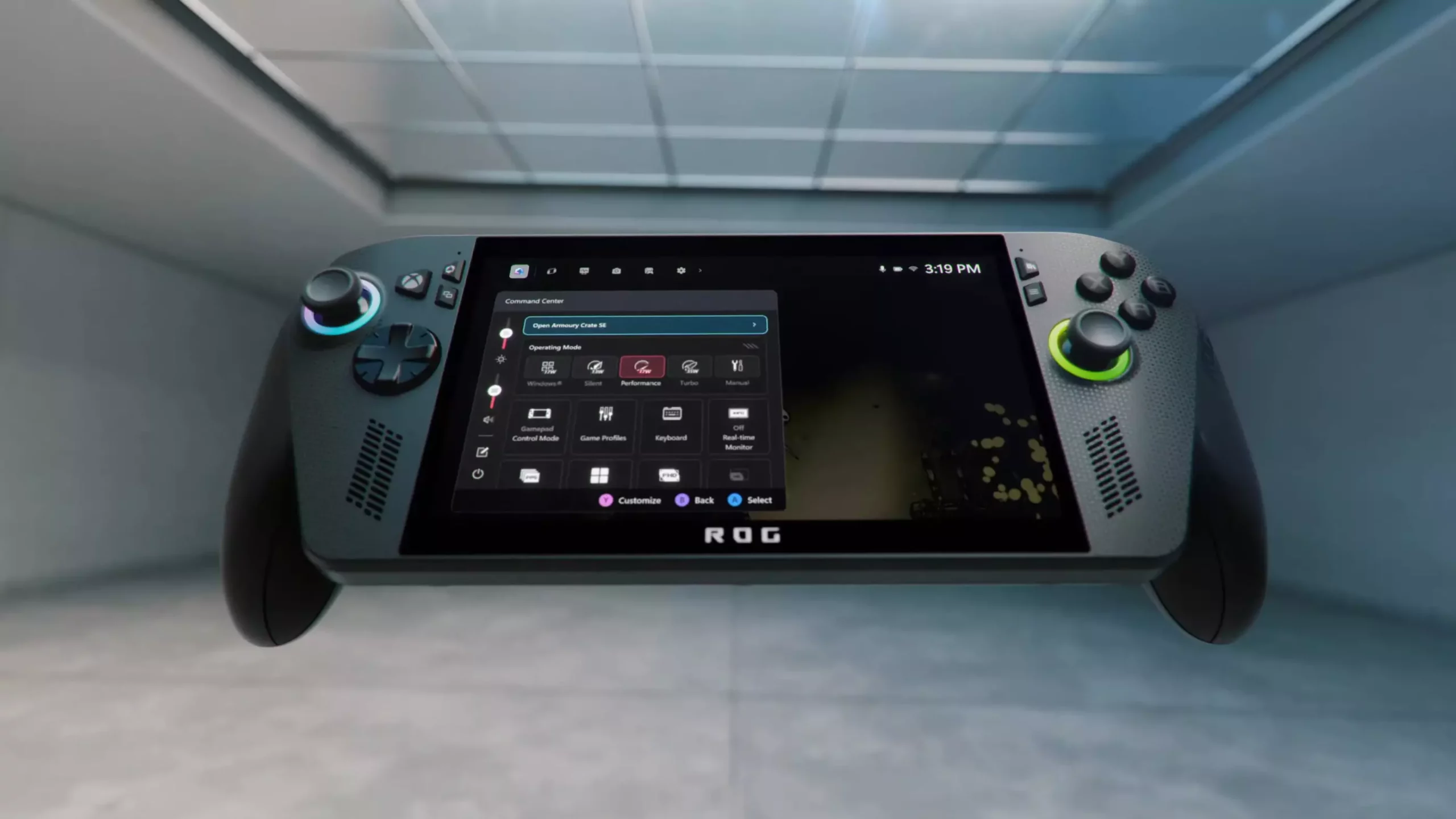In a shocking turn of events, the future of Xbox console gaming appears to be veering off the traditional path, diverging from conventional expectations. Recent reports indicate that a proposed handheld version of the Xbox may already be “essentially canceled.” This statement, albeit clouded in uncertainty, raises critical questions about what lies ahead for one of the industry’s most recognized names in gaming. While the idea of an Xbox handheld was exciting, understanding the implications of this shift is more important than the devices themselves.
The announcement, or lack thereof, surrounding the Xbox handheld is perplexing, especially considering that it was merely a rumor about a product that, as of now, remains unconfirmed. However, it hints at a transformative approach that Microsoft may be taking, one that could fundamentally redefine the brand’s identity in the gaming world.
The Asus ROG and Microsoft Partnership
Central to this narrative is the collaboration between Microsoft and Asus that has given rise to products like the Asus ROG Xbox Ally and its enhanced counterpart, the ROG Xbox Ally X. These are not standard Microsoft consoles but rather PC handhelds. They employ existing technology and are built around a modified version of Windows, optimized for gaming. This innovative approach suggests that the next generation of Xbox may not consist of in-house consoles, but rather a variety of devices produced by third-party partners.
This collaborative model is intriguing, as it hints at a broader strategy by Microsoft to diversify the Xbox platform. Instead of relying solely on traditional hardware manufacturing, Microsoft seems poised to license its brand to third-party manufacturers, allowing them to create their takes on what an “Xbox” could be. This could very well mark a paradigm shift in how we perceive gaming consoles.
Game Pass: The Heart of Microsoft’s Future Strategy
At the core of this potential future lies Game Pass, Microsoft’s ambitious subscription service designed to keep gamers engaged while generating steady revenue. By reeling in subscribers, Microsoft solidifies its presence in the market while shifting focus from hardware to software and service-oriented models. This evolution reflects a growing trend in the tech industry: the migration towards cloud-based and subscription services, a transition that offers gamers flexibility while allowing companies to pivot around diminishing hardware sales.
Industry observations suggest that a solidified partnership approach could pave the way for various Xbox-compatible devices, catering to different segments of the gaming population. Imagine a scenario in which gamers can select consoles or handhelds based on performance, budget, or even unique use-cases, without being shackled to a singular hardware standard. This multifaceted approach could democratize gaming, making it accessible to a larger audience, and catering to niche markets that traditional hardware often neglects.
Emulating the Legacy: Streaming and Compatibility
The transition into a partnership-centered console ecosystem opens the door for innovative technologies such as game emulation and streaming. With a revamped version of Windows tailored for gaming, Microsoft may allow new devices to run older titles through virtualized platforms, keeping legacy games alive even as hardware changes. This capability may also encourage cross-platform compatibility—a feature that has been largely absent in past console generations.
Proponents of this strategy argue that it enhances user experience, enabling gamers to access their favorite titles across a range of devices without the need for dedicated gaming hardware. The aspiration for a unified experience resonates with gamers who are increasingly seeking convenience without sacrifiying quality.
Brand Evolution: From Console Maker to Service Provider
As we analyze these developments, it becomes clear that Microsoft is not just evolving its gaming hardware; it is metamorphosing into a service provider that leverages leading technologies to deliver enriched gaming experiences. The shift to branding everything under “Xbox PC” may signify the company’s resolve to disentangle itself from traditional console manufacturing while embracing a more expansive definition of what Xbox encompasses.
This measure aligns well with the industry’s general direction, as competitors like Steam have begun to dominate the market. By recasting its branding, Microsoft arguably prepares itself for fierce competition, alleviating the exclusive hardware ties that once defined its products.
In this rapidly changing landscape, the focus seems to be shifting towards creating a versatile platform for gaming that adapts to evolving consumer needs, rather than being locked into a stringent cycle of gaming console releases. The future of Xbox is not just in handheld devices or traditional consoles but in a vision that blends hardware and software in a multifaceted, consumer-friendly ecosystem.
Ultimately, while it remains to be seen what the future holds for Microsoft’s gaming division, one thing is clear: the gaming landscape is in for revolutionary changes that aim to enrich the experiences of gamers everywhere.

